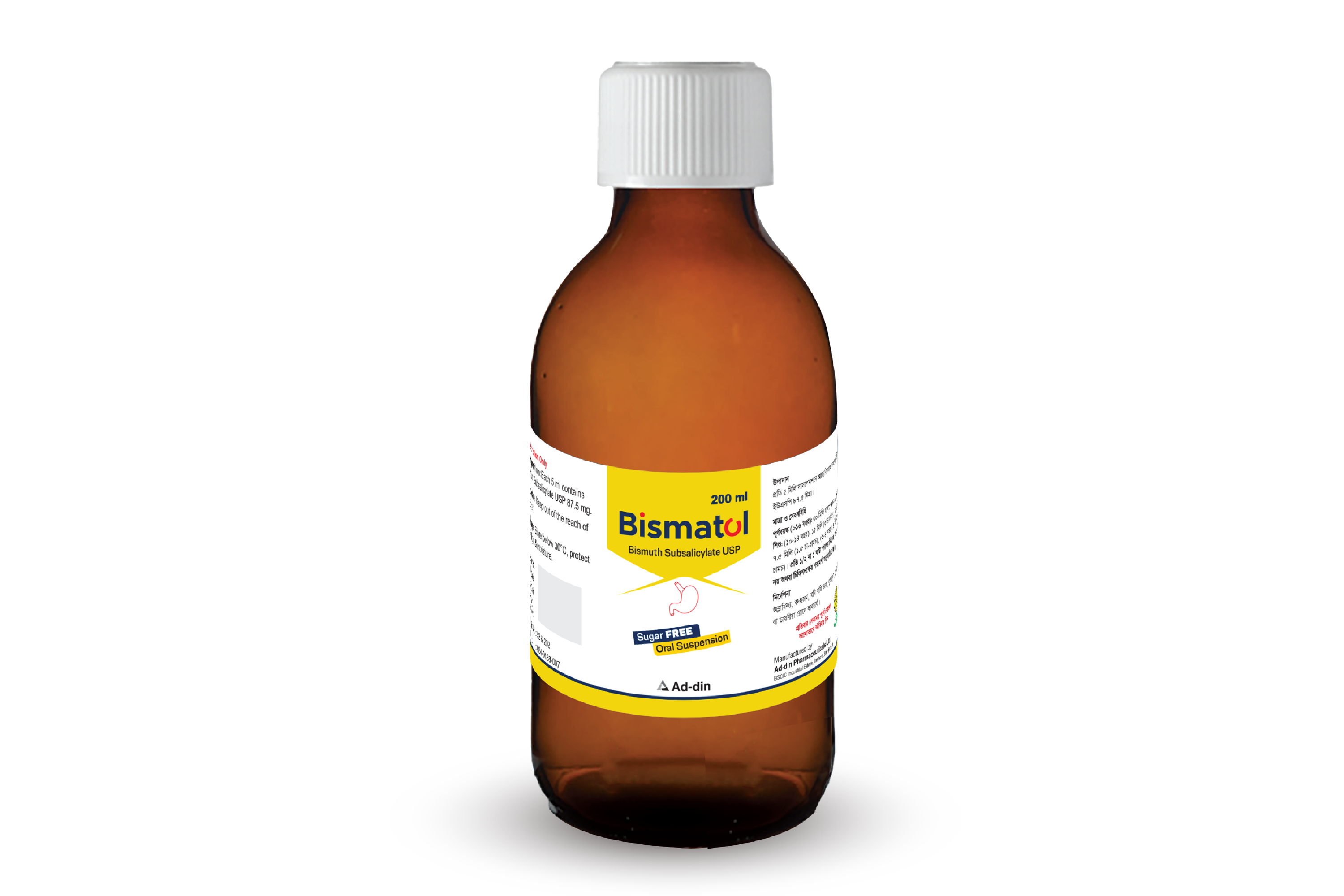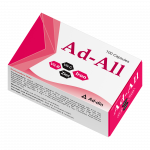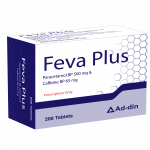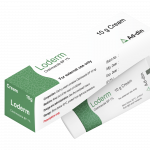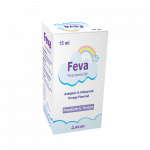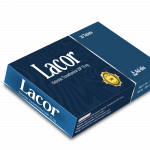Composition
Bismatol Suspension: Each 5 ml oral suspension contains Bismuth Subsalicylate USP 87.5 mg.
Pharmacology
Antacid action: Bismuth Subsalicylate coats ulcer surface, protecting it from acid and pepsin. It stimulates mucus and bicarbonate secretion and also reacts with HCI which produces Oxychloride & Salicylic acid and thus reduces HCI.
Anti-inflammatory action: Bismuth Subsalicylate is hydrolyzed to salicylic acid which inhibits prostaglandin G & H synthase 1 & 2. Thus reduces inflammation and coats irritated tissue to retard the expulsion of fluid.
Anti-diarrheal action: Bismuth Subsalicylate exerts an anti-diarrheal effect through several mechanisms (a) In vitro and human studies demonstrated an antimicrobial effect against a wide variety of enteric pathogens that cause diarrhea and food poisoning (b) Human and Animal studies demonstrated a binding and inactivation of bacterial toxins and bile acids (c) Animal studies demonstrated an inhibition of secretion and stimulation of absorption thereby reducing fluid in the intestine and (d) Human studies demonstrated a decreasing GI motility or transit time.
Indications
Bismatol is indicated for upset stomach, indigestion, heartburn, nausea, gas, belching, hyperacidity, diarrhea & traveler’s diarrhea. It has also mild anti-inflammatory effect.
Dosage & Administrations
| Adult (>16 years) | 30 ml in dosing cup provided or 6 x 5 ml spoonful |
| Children (10-14 years) (5-9 years) (3-4 years) |
15 ml (3 teaspoons) 7.5 ml(11⁄2 teaspoons) 5 ml (1 teaspoon) |
- Children under 3 years: Ask a doctor.
- Repeat dose every 1⁄2 to 1 hour if needed. Not more than 8 doses to be taken in 24 hours.
Contraindications
Bismuth Subsalicylate should not be used by patients hypersensitive to Aspirin or other Salicylates or any ingredient in this formulation.
Warning & Precaution
Reye’s syndrome: Children and teenagers who have or are recovering from chicken pox or flu-like symptoms should not use this product. When using this product, if changes in behavior with nausea and vomiting occur, consult a doctor because these symptoms could be an early sign of Reye’s syndrome, a rare but serious illness.
Side Effects
Black stool and black tongue is common with use of Bismuth Subsalicylate. Bismuth Subsalicylate should not be used if symptoms are severe or persist for more than 2 days. Do not exceed the recommended dose, shake bottle before use.
Use in Pregnancy & Lactation
There are no adequate data concerning the use of Bismuth Subsalicylate in pregnant women. The potential risk for humans is unknown. Bismuth Subsalicylate should not be used during lactation unless clearly necessary.
Use in Elderly Patients
No special precaution is needed. Caution is needed in case of patients suffering from renal insufficiency.
Drug Interaction
Do not take with Aspirin or other Salicylates. Caution should be exercised by patients taking medicines for anti-coagulation (thinning of the blood), diabetes or gout.
Overdose
Bismuth intoxication may present as an acute encephalopathy with confusion, myoclonic movements, tremor, dysarthria and walking and standing disorders. Bismuth intoxication may also cause gastrointestinal disturbances, skin reactions, discolouration of mucous membranes, and renal dysfunction as a result of acute tubular necrosis. Treatment includes gastric lavage, purgation and hydration. Chelating agents may be effective in the early stages following ingestion and haemodialysis may be necessary.
Overdose of Bismuth Subsalicylate may also give symptoms of salicylate intoxication e.g. dizziness, tinnitus, sweating, nausea, headache.
If symptoms occur, the use of Bismuth Subsalicylate should be discontinued. Management of overdose is the same as that of salicylate overdose.
Storage
Store in a cool (below 25°C temperature) and dry place, protected from light. Keep away from the reach of children.
Packing
Each bottle contains 200 ml Bismuth Subsalicylate oral suspension with a 30 ml measuring cup.

